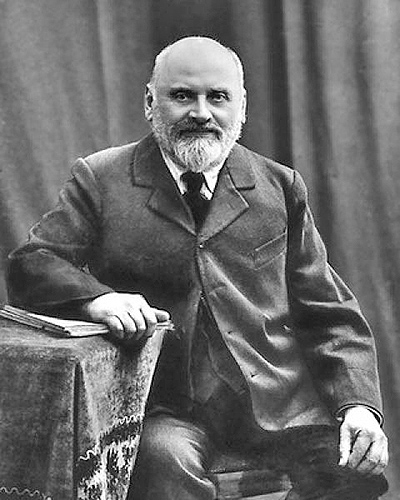Born in Nizhniy Novgorod, Dec 21, 1836/Jan 2, 1837
Died in St Petersburg, 16/May 29, 19101
Balakirev was the acorn from which the mighty oak of Russian music in the second half of the 19th century sprang; the charm of his genius and the wholesome spread of his influence are more than enough to guarantee his immortality.2
- Mily Alekseyevich Balakirev [pronunciation] is known more for the profound influence of those he mentored than his own compositions.
- Balakirev was seen as the leader of the “Mighty Handful,” a group of five Russian nationalist composers that included César Cui, Mussorgsky, Borodin, and Rimsky-Korsakov.
- That being said, Balakirev’s compositions were crucial to the development Russian music for two reasons:
- His treatment of native folk music
- His development of “the Balakirevan east” musical idiom, influences by the composer’s visits to the Caucasus in the 1860s.
- Balakirev’s amanuensis, Vasily Yastrebtsev, wrote, “What an enormous and important role he played in the education of all of us – this energetic young Balakirev, who had just returned from the Caucasus and played for us the Georgian folksongs he had heard there… we had never heard anything like that. We were all literally reborn.”3
- As a composer, Balakirev wrote piano works, orchestral works, and songs. His primary instrument was piano, and his works for the instrument are among his most popular (ex: Islamey).4
Learn More
Biography from Naxos
Sources
- Stuart Campbell, “Balakirev, Mily Alekseyevich,” Grove Music Online (2001), accessed January 12, 2021, https://www.oxfordmusiconline.com/grovemusic/view/10.1093/gmo/9781561592630.001.0001/omo-9781561592630-e-0000040685.
- David Nice, “Composer of the Month: Mily Balakirev,” BBC Music Magazine Vol. 28, No. 3 (2020), 66-70.
- Ibid.
- Stuart Campbell, “Balakirev, Mily Alekseyevich,” Grove Music Online.

